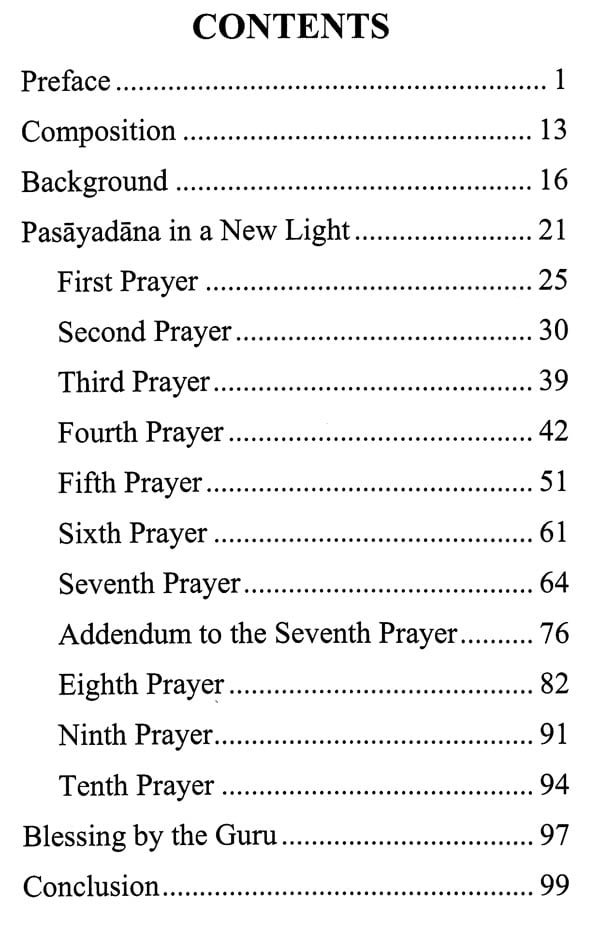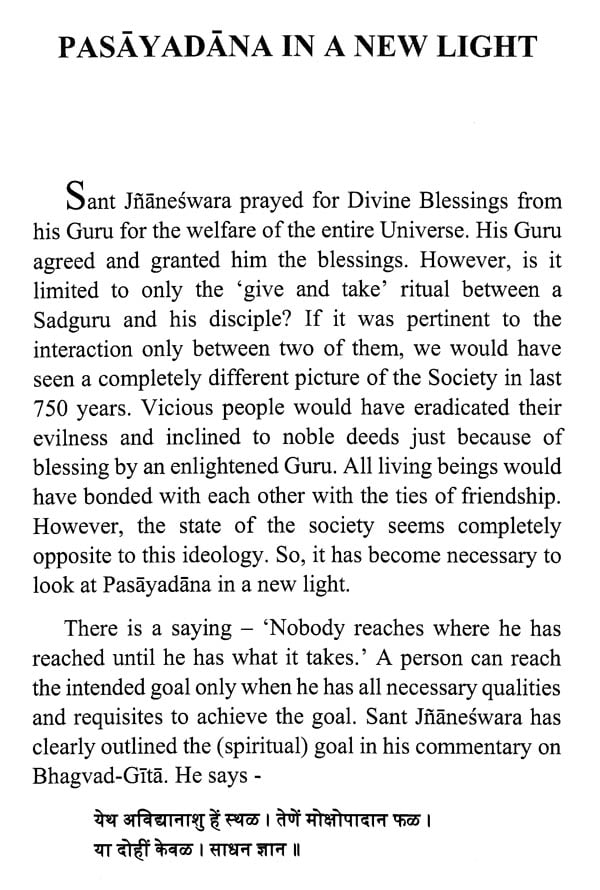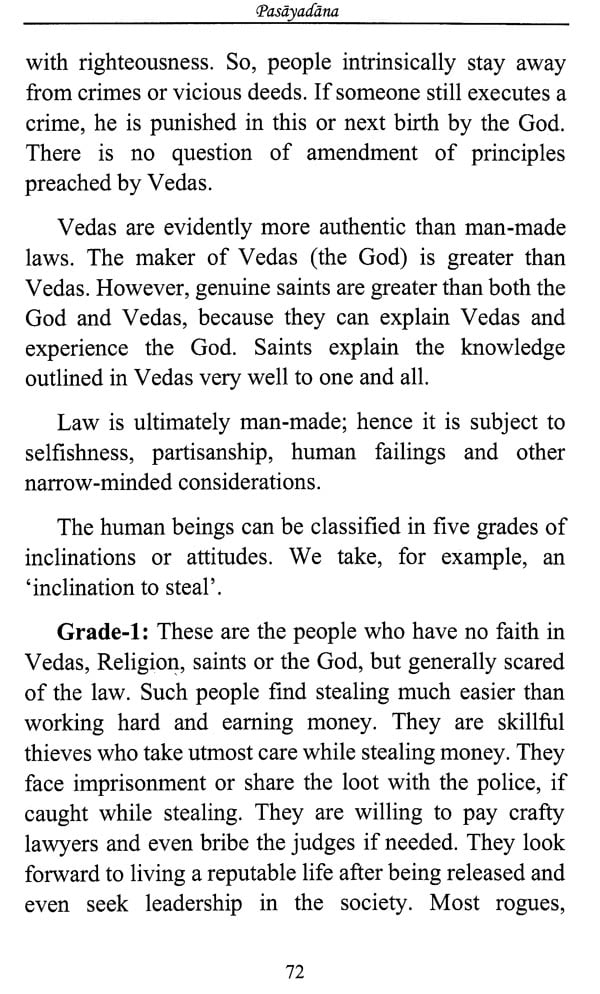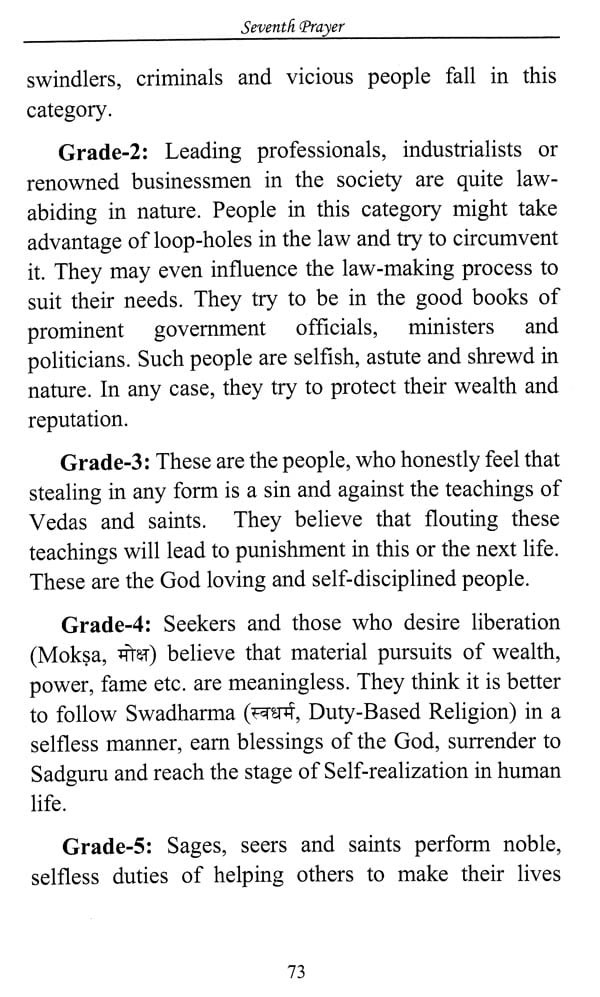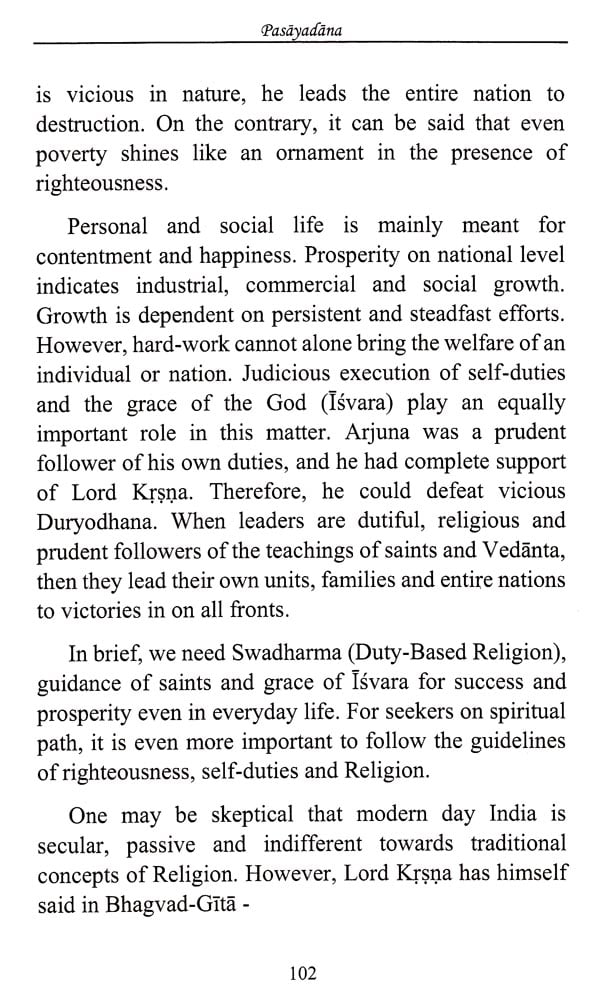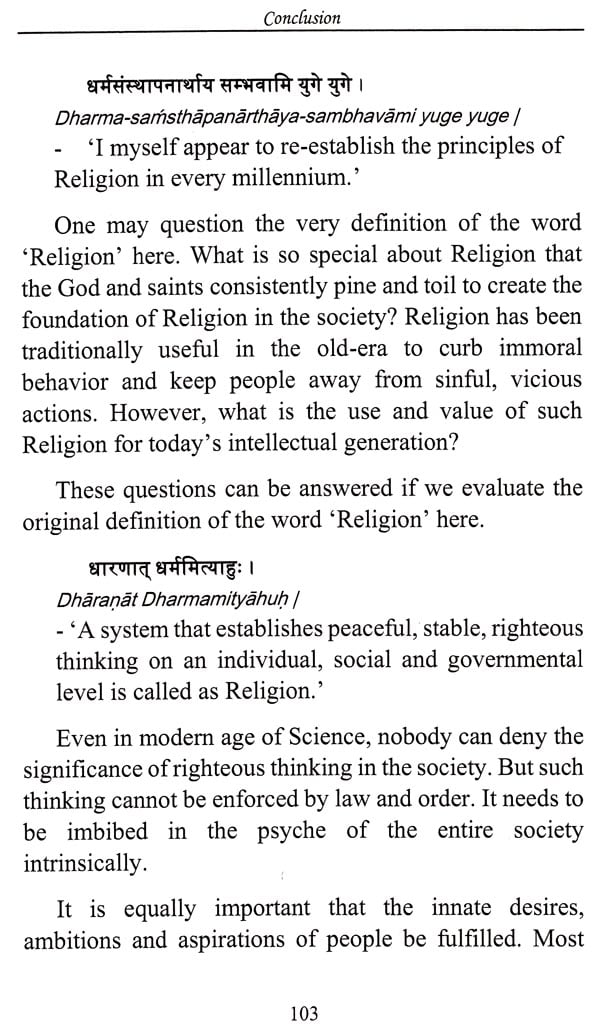
Sant Jnaneswara's Pasayadana (Divine Blessings)
Book Specification
| Item Code: | NAR556 |
| Author: | Shri Shankar maharaj Khandarkar |
| Publisher: | Motilal Banarsidass Publishers Pvt. Ltd. |
| Language: | English |
| Edition: | 2018 |
| ISBN: | 9788120842083 |
| Pages: | 118 |
| Cover: | PAPERBACK |
| Other Details | 8.50 X 5.50 inch |
| Weight | 130 gm |
Book Description
Mere recitation, reading or singing of verses in Pasayadtina has evidently not changed people or society. The Indian mindset has resigned to constant expectations of blessings, grace or divine power in life. As a result, people have become dependent, lethargic, passive and action less, which surely is an area of concern.
It is only natural and right to expect people to evaluate their own malicious thoughts and eradicate their bad inclinations themselves. The darkness created by a person's sins can go away only by the light of his own virtues. The world will see the glorious light of actions (Swadharma) only when everyone performs his own duties in the most effective manner. It is clearly the responsibility of the reader to understand the meaning of these verses, introspect himself and change his own behavior intrinsically. If everyone can change himself in this manner, it may be called as the real fulfillment of Sant ,Ift5neSwara's wishes in Pasayadiina.
Dr. Shrikrishna Deshmukh, fondly called as Dr. Kaka, is a disciple of the author Shri Shankar Maharaj Khandarkar. A retired Medical Practitioner revered by many people for his selfless, exemplary medical service, Dr. Kaka hails from a town named Murgud in Kolhapur district in Maharashtra. He is a renowned spiritual teacher and exponent of Advaita Vedanta. He has authored more than 50 books in Marathi on topics including Upanisads, Bhagavad-Gita and Brahmasatras. He is known for his remarkable dexterity in logically analyzing intricate concepts of Vedanta. An excellent orator, he emphasizes the path of 'Applied Vedanta' in day-to-day life and his lectures resonate extremely well with audiences of all ages. Today, many Truth-seekers are drawn towards him due to his wisdom, compassion and practical approach towards spirituality. His cheerful, calm, reticent and courteous nature is highly revered and genuinely admired by one and all.
This is a famous quote by Sant Tukarama, which explains the remarkable purpose of the life of saints. However, there is a misconception that saints are recluses and preachers from ivory towers, who disregard the society. They are blamed for promoting the path of renunciation and obstructing the overall materialistic progress of the nation. They are considered as mere eccentrics who go on pilgrimages, sing, chant, read, write and give spiritual discourses. Many people believe that India would have progressed much ahead of other nations if saints had used their intellect in the field of Science and Technology. By expounding the path of spirituality, devotion, righteousness, renunciation and detachment, saints have crippled the nation. However, this reproach is totally unfounded. The profound texts written by all saints testify the fact that they are deeply and genuinely concerned about the well-rounded progress of mankind.
Sant Thane§wara is a distinguished and luminary saint from Maharashtra. He is best known for his treatise ManeSwari, which is a magnificent Marathi commentary on the Bhagvad-Gita. At the end, Sant Manegwara dedicated the treatise to his Guru Sant Nivrttinatha and asked for Divine Blessings (Pasayadana), which is a topic of great warmth, affection and inclusiveness. However, he did not request anything for himself. Instead, he asked for Divine Blessings (Pasayadana) for the welfare of the entire Universe. Thane§wara Maharaja had a sublime wish that the world should be pure, noble, pristine, auspicious and beautiful place. His eminent wish is expressed in Pasayadana. His prayer is for the prosperity of one and all. Such gracious, all-inclusive thoughts cannot be found in the literature of the so-called progressive culture of any other nation.
Human life cannot be evaluated just in terms of scientific, technological and commercial progress. The well-rounded and elevated human life is not dependent on the use of more or better tools and resources. The negative traits in human mind such as lust, anger, greed, arrogance, temptation, jealousy and vanity cannot be eradicated even with the most sophisticated scientific instruments. However, for maintaining the healthy state of the society, it is imperative that such mental disorders are completely wiped out.
Sciences and material objects can only enhance and beautify the external form of the world. They can fulfill the gross, physical needs of human existence. But they cannot guide humans to purity and the Ultimate Truth (Satya, -17q). External beauty, without purity and knowledge, is of no use to the real progress of the society. A young girl may look very beautiful with the help of cosmetic aids and advanced beauty treatments. But if she is bedridden with tuberculosis, none of the other finer things such as ornaments, cosmetics, food, clothes, etc. will help her. Similarly, if a society is afflicted with mental disorders such as lust, anger and greed, it suffers from the tuberculosis of unrighteousness. When a society frantically heads towards material progress, it is bound to find itself in a rat-race that leads to unethical, disgraceful, unreligious and utterly selfish behavior. This in turn causes tyranny, oppression, brutality and complete disregard for the sufferings of others. In such an unjust state, even if the society is bedecked with modern scientific tools and resources, it doesn't lead to stable, secure, virtuous and blissful living. Hence, the faith in Religion and God is imperative in the society.
Science, Religion, and God are inherently different entities, but they are complementary to each other. When woven together, they make human life truthful, auspicious and beautiful (Satya, Siva, Sundara, w, Pa, VT).
1. Science makes the world beautiful (Sundara, VT) and comfortable place to live in. However, Science is neither auspicious nor the Eternal Truth. Science is beneficial in the form of instruments, and killer in the form of weapons. It is a boon in the form of creation as well as a curse in the form of destruction. It cannot lead the world towards the ultimate welfare of mankind. Science is always evolving, hence incomplete in nature. It is changeable and will ultimately come to an end with the Universe.
2. Religion is auspicious (Siva, -f). Following the guidelines of Religion leads to more tolerance, affinity, compassion, harmony and security. But it is neither beautiful nor the Eternal truth. The practice of Religion is arduous and painful. Hence, there is no beauty in it. Following Religion involves actions, which can only be executed by the body, organs or the mind, which are perishable. Hence, Religion cannot be the changeless, Eternal Truth (Satya )
3. God is the only changeless and Eternal Truth (Satya, 77), which is not dependent on any other person or object. The quest for the God makes human life more purposeful, meaningful, steadfast, and fruitful. He is the substratum (Adhisthana, 31-N-79-) of both Science and Religion. God is the original proponent of Science, since fundamentals of Science are seen in the process of creation of the world. God is the institutor of Religion. In fact, the very goal of Religion is the realization of the God.
